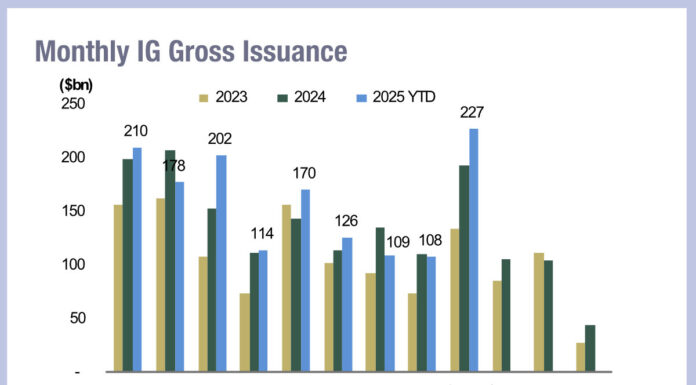Regulation is an ever-changing beast; panellists at this year’s International Derivative Expo conference provided updates on new mandates, progress being made and how implementation is diverging between the EU and the UK.
Clarification is still needed around European Market Infrastructure Regulation (EMIR) 3.0, panellists on the Evolving Regulatory Landscape in Europe’ panel agreed, with Bill Stenning, head of public affairs for the UK at Societe Generale, stating that as a clearing provider, the firm is receiving a lot of questions from clients about the details of the regulation, which is intended to standardise and optimise risk management in derivatives markets.
Changes to supervision in the regulation are important, stated Julien Jardelot, head of Europe government relations and regulatory strategy at LSEG, helping to create a level playing field. Greater involvement from ESMA in this space is a positive, he added, arguing that EMIR 3.0 will allow companies to launch new products at pace, reducing time to market from several months to 90 days.
When discussing European regulation, the spectre of Brexit is never far from the conversation. Divergence between regulation in the UK and EU can prove challenging, affirmed Hannah Meakin, partner at Norton Rose Fulbright, stating that “people are going to have to be a bit more mindful in making sure that they’re [keeping up] with all processes.”
EU law is currently being assimilated into UK law books, Meakin shared, with EMIR and aspects of MiFIR lined up to be included in the third wave of the initiative. This offers an opportunity for regulators to make changes to how EMIR works in the UK, she noted, questioning which aspects of EMIR 3.0 will be translated into the UK.
Although there are concerns that Europe is too fragmented due to the proliferation of CCPs in the region, Jardelot argued that “if you look per class and per currency, there’s not really that many”. The range is necessary, he added, promoting competition.
Markets and providers in Europe are diverse and will remain so, stated Nicoletta Giusto, independent member of the CCP supervisory committee and director for central counterparties at ESMA, adding that this variety demonstrates the number of countries that make up the EU and the historical differences between them.
Operational resilience is a key part of regulation. A lot has been done by ESMA in this space, “but it’s not done yet”, warned Giust. The upcoming implementation of DORA in Europe will make a difference in the ICT space, while the UK equivalent requires the industry to take a more holistic approach to financial stability, Meakin added. While less prescriptive than its European counterpart it necessitates reflection and action from firms, she said, bringing all service providers who could undermine the safe continuation of client services under scope.
On what they wanted the next legislative mandate to be, Jardelot responded with regulatory harmonisation via ESMA supervision, Meakin called for an environment that encourages and enables firms to use new technology to conduct business in a streamlined way and Stenning demanded less complexity, less change and greater stability.
“We need to catch up with implementation,” he concluded.
©Markets Media Europe 2024
©Markets Media Europe 2025










